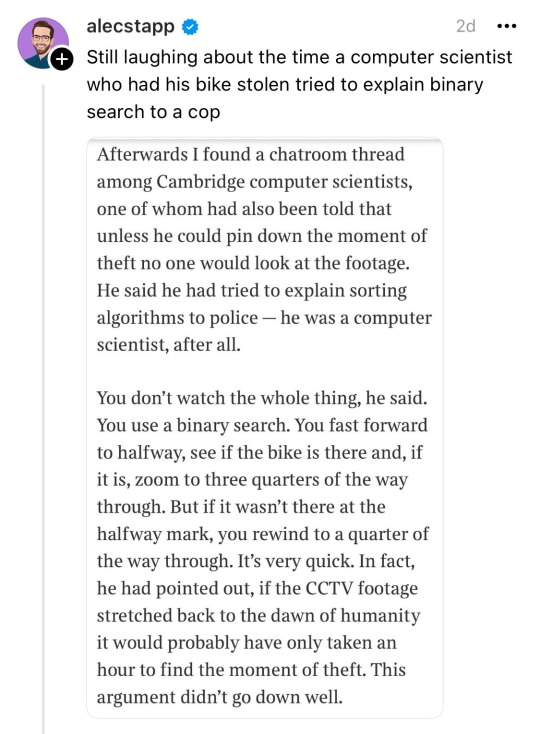#a&a maths
Text
"average cat owner spends 3 years in prison" factoid actualy just statistical error. average owner spends 0 years in prison. Miette's mother, who kicked her body like the football and went to jail for One Thousand Years is an outlier adn should not have been counted
#miette#spiders georg#tumblrstuff#meme#1k#One Thousand Notes#oh! oh!#I swear I can math in real life#10k#tumblr is insane#is this post making the miette tag trend#20k#I know there are more than 333 cat owners#It was a small sample size#40k#50k#75k#100k
138K notes
·
View notes
Text
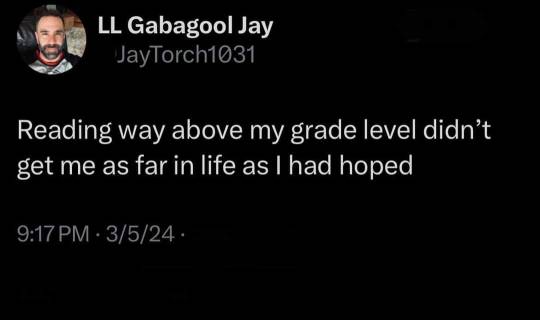
35K notes
·
View notes
Text
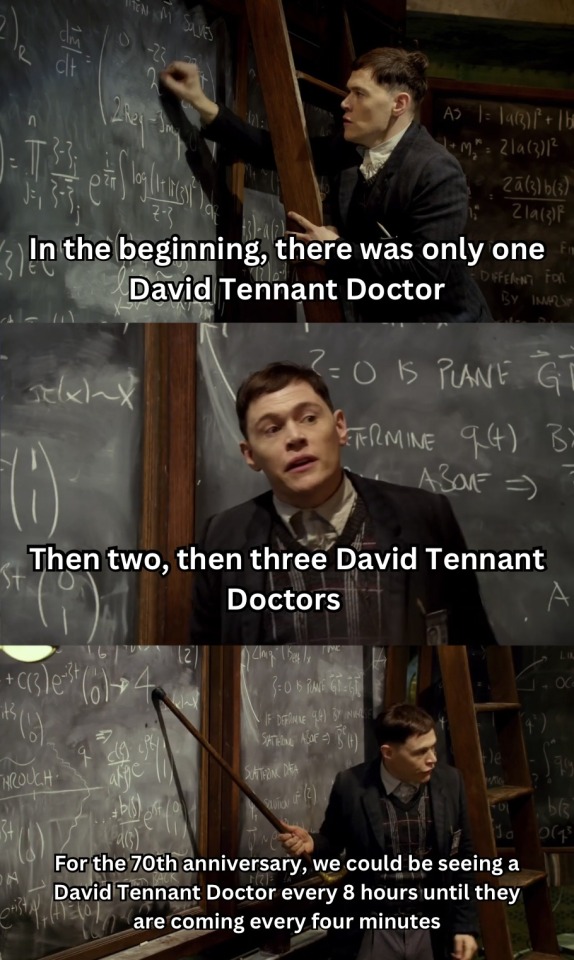
#through happy coincidence this could also be a torchwood briefing#David Tennant#the giggle#doctor who#spoilers#10th Doctor#14th doctor#tentoo#ik the math ain’t mathing but it made me giggle
33K notes
·
View notes
Text


#statistics#memes#meme#lol#mathematics#mathblr#math#maths#relatable#relatable meme#relatable memes#dog meme#dog memes#this is fine meme#this is fine dog#funny#Twitter#Twitter meme#Twitter memes
58K notes
·
View notes
Text
You guys are never gonna believe what the name of this sculpture is


24K notes
·
View notes
Note
what kind of fucked up and evil dish can i make without buying too many ingredients?
what kind of fucked up and evil dish can i make without buying too many ingredients?
->
this day and minute? go put kiwi in the microwave and see a gunky kind of bitch unfold

27K notes
·
View notes
Text

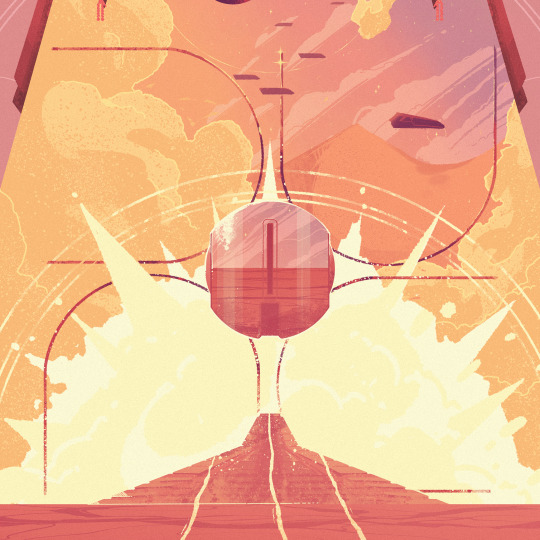
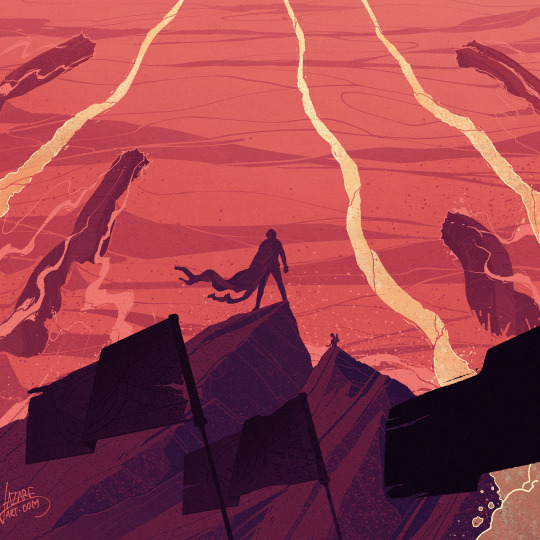
Lead them to paradise.
#dune#had to do some math for this!#dune part two#dune 2#paul atreides#jessica atreides#arrakis#my art#legionofpotatoes#sorry for this again wanted to big brain the presentation so i tried a Thing#feel like it stitches together fairly well
13K notes
·
View notes
Text

#News#lgbtq#democrats#republicans#maths#science#teachers#schools#ron desantis#trump#liberals#algebra#transgender pride#pride day
48K notes
·
View notes
Text

13K notes
·
View notes
Text
Photographers all know about polarizing filters. They remove reflections off the surfaces of objects. We use them to see into water or windows that are obscured by those reflections. But anything with an even slightly glossy surface has a layer of reflection on top. So if you have a shiny green plant, it can remove the shiny and reveal a very saturated green underneath. Polarizers also remove a lot of scattered and reflected light from the sky. Which reveals a deep blue color you didn't even know was there.
Here is a photo I took of my circular polarizer.

And the first thing I noticed when walking outside during the eclipse was the color of everything was more saturated, just like in that circle. Apparently, an eclipse significantly reduces polarized light and I got this creepy feeling because I was only ever used to seeing the world like that through the viewfinder of my camera.
The other thing I noticed was my outdoor lights. I leave them on all the time because I never remember to turn them on at night. And usually the sun will render them barely visible during the day. On a very sunny day they almost look like they are off.

But you can clearly see they are shining and even flaring the camera during the eclipse.
Our eyes adjust to lighting changes very well so it was hard to tell how much dimmer things were, but that is a good indication. I took this photo a few minutes ago and you can see how dim the lights appear after the moon has fucked off.

I did a calculation using the exposure settings between these two photos. The non-eclipse photo has 7 f-stops more light. That is 128 times or 12,700% more light.
A partial Pringle eclipse cut the sun's light by 99.2% and somehow our eyes adjusted to make it seem like a normal sunny day (with weird ass saturated colors).
9K notes
·
View notes
Text
My wonderful spouse, who I love very much, set a phone alarm to remind him to send drunk texts to his friends this evening, and ensured that he would be appropriately drunk (0.086%, currently) by consulting a blood alcohol calculator that factored in change over time. He was worried that this level of planning was against the spirit of Drunk Texts, but I assured him it was not.
15K notes
·
View notes
Text
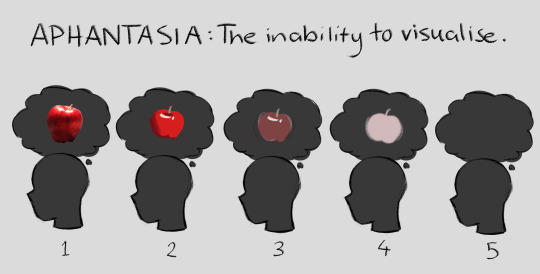

i have neither a good imagination nor aphantasia, but a secret third thing
#adhd#doodles#show this to your therapist instead of failing to explain it like i did#me: its like i cant control my thoughts like i was trying to think of something earlier today but#all i could think of was this giraffe eating leaves and no matter how hard i tried to focus the thought would just. replay#my therapist: what happens if you try to let the thought just play out#me: ........ i dont know but i dont want it to be there at all when im trying to do simple addition in a maths exam#10k#100k
158K notes
·
View notes
Text
People on this site will put together polls like "The Banach-Tarski Paradox versus Camembert Cheese", then act like the results prove that they're surrounded by idiots.
9K notes
·
View notes
Text
chinese room 2
So there’s this guy, right? He sits in a room by himself, with a computer and a keyboard full of Chinese characters. He doesn’t know Chinese, though, in fact he doesn’t even realise that Chinese is a language. He just thinks it’s a bunch of odd symbols. Anyway, the computer prints out a paragraph of Chinese, and he thinks, whoa, cool shapes. And then a message is displayed on the computer monitor: which character comes next?
This guy has no idea how the hell he’s meant to know that, so he just presses a random character on the keyboard. And then the computer goes BZZZT, wrong! The correct character was THIS one, and it flashes a character on the screen. And the guy thinks, augh, dammit! I hope I get it right next time. And sure enough, computer prints out another paragraph of Chinese, and then it asks the guy, what comes next?
He guesses again, and he gets it wrong again, and he goes augh again, and this carries on for a while. But eventually, he presses the button and it goes DING! You got it right this time! And he is so happy, you have no idea. This is the best day of his life. He is going to do everything in his power to make that machine go DING again. So he starts paying attention. He looks at the paragraph of Chinese printed out by the machine, and cross-compares it against all the other paragraphs he’s gotten. And, recall, this guy doesn’t even know that this is a language, it’s just a sequence of weird symbols to him. But it’s a sequence that forms patterns. He notices that if a particular symbol is displayed, then the next symbol is more likely to be this one. He notices some symbols are more common in general. Bit by bit, he starts to draw statistical inferences about the symbols, he analyses the printouts every way he can, he writes extensive notes to himself on how to recognise the patterns.
Over time, his guesses begin to get more and more accurate. He hears those lovely DING sounds that indicate his prediction was correct more and more often, and he manages to use that to condition his instincts better and better, picking up on cues consciously and subconsciously to get better and better at pressing the right button on the keyboard. Eventually, his accuracy is like 70% or something -- pretty damn good for a guy who doesn’t even know Chinese is a language.
* * *
One day, something odd happens.
He gets a printout, the machine asks what character comes next, and he presses a button on the keyboard and-- silence. No sound at all. Instead, the machine prints out the exact same sequence again, but with one small change. The character he input on the keyboard has been added to the end of the sequence.
Which character comes next?
This weirds the guy out, but he thinks, well. This is clearly a test of my prediction abilities. So I’m not going to treat this printout any differently to any other printout made by the machine -- shit, I’ll pretend that last printout I got? Never even happened. I’m just going to keep acting like this is a normal day on the job, and I’m going to predict the next symbol in this sequence as if it was one of the thousands of printouts I’ve seen before. And that’s what he does! He presses what symbol comes next, and then another printout comes out with that symbol added to the end, and then he presses what he thinks will be the next symbol in that sequence. And then, eventually, he thinks, “hm. I don’t think there’s any symbol after this one. I think this is the end of the sequence.” And so he presses the “END” button on his keyboard, and sits back, satisfied.
Unbeknownst to him, the sequence of characters he input wasn’t just some meaningless string of symbols. See, the printouts he was getting, they were all always grammatically correct Chinese. And that first printout he’d gotten that day in particular? It was a question: “How do I open a door.” The string of characters he had just input, what he had determined to be the most likely string of symbols to come next, formed a comprehensible response that read, “You turn the handle and push”.
* * *
One day you decide to visit this guy’s office. You’ve heard he’s learning Chinese, and for whatever reason you decide to test his progress. So you ask him, “Hey, which character means dog?”
He looks at you like you’ve got two heads. You may as well have asked him which of his shoes means “dog”, or which of the hairs on the back of his arm. There’s no connection in his mind at all between language and his little symbol prediction game, indeed, he thinks of it as an advanced form of mathematics rather than anything to do with linguistics. He hadn’t even conceived of the idea that what he was doing could be considered a kind of communication any more than algebra is. He says to you, “Buddy, they’re just funny symbols. No need to get all philosophical about it.”
Suddenly, another printout comes out of the machine. He stares at it, puzzles over it, but you can tell he doesn’t know what it says. You do, though. You’re fluent in the language. You can see that it says the words, “Do you actually speak Chinese, or are you just a guy in a room doing statistics and shit?”
The guy leans over to you, and says confidently, “I know it looks like a jumble of completely random characters. But it’s actually a very sophisticated mathematical sequence,” and then he presses a button on the keyboard. And another, and another, and another, and slowly but surely he composes a sequence of characters that, unbeknownst to him, reads “Yes, I know Chinese fluently! If I didn’t I would not be able to speak with you.”
That is how ChatGPT works.
#txt#ai shit#it’s not a perfect analogy#chatgpt doesn't think the symbols have no meaning#rather it doesn't think at all#all it does is the maths#but still#effortpost
47K notes
·
View notes
Text
i would never use logic. that's appropriating vulcan culture.
#star trek#original star trek#captain kirk#spock#mr spock#dr mccoy#uss enterprise#vulcan#tos#trying to justify myself to my math teacher
10K notes
·
View notes
